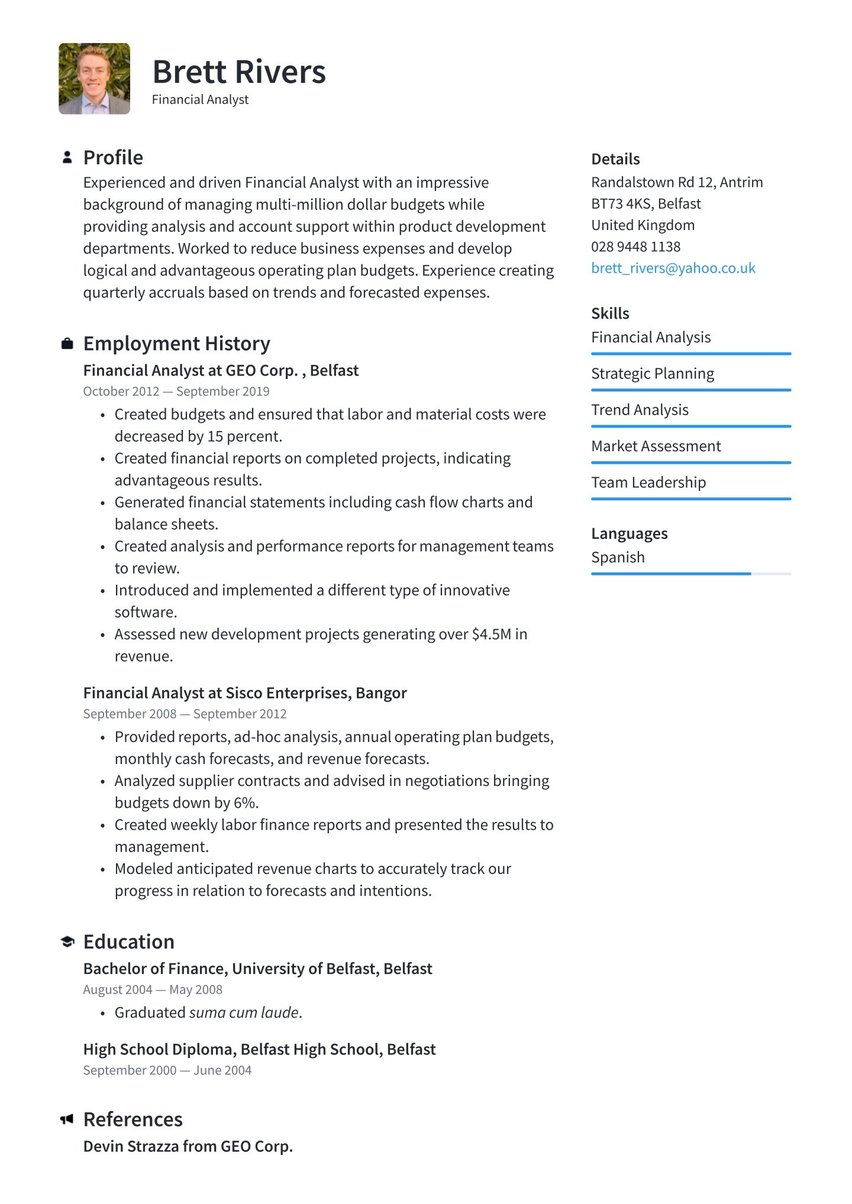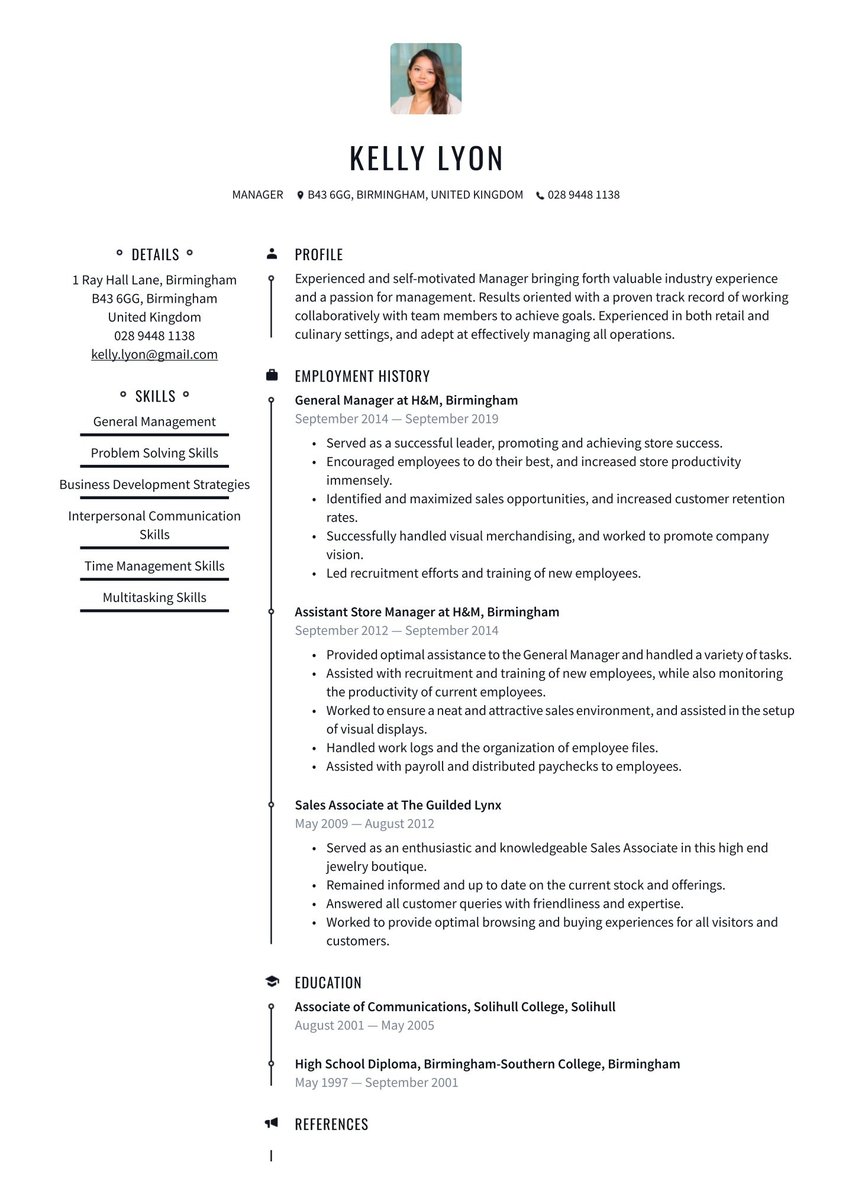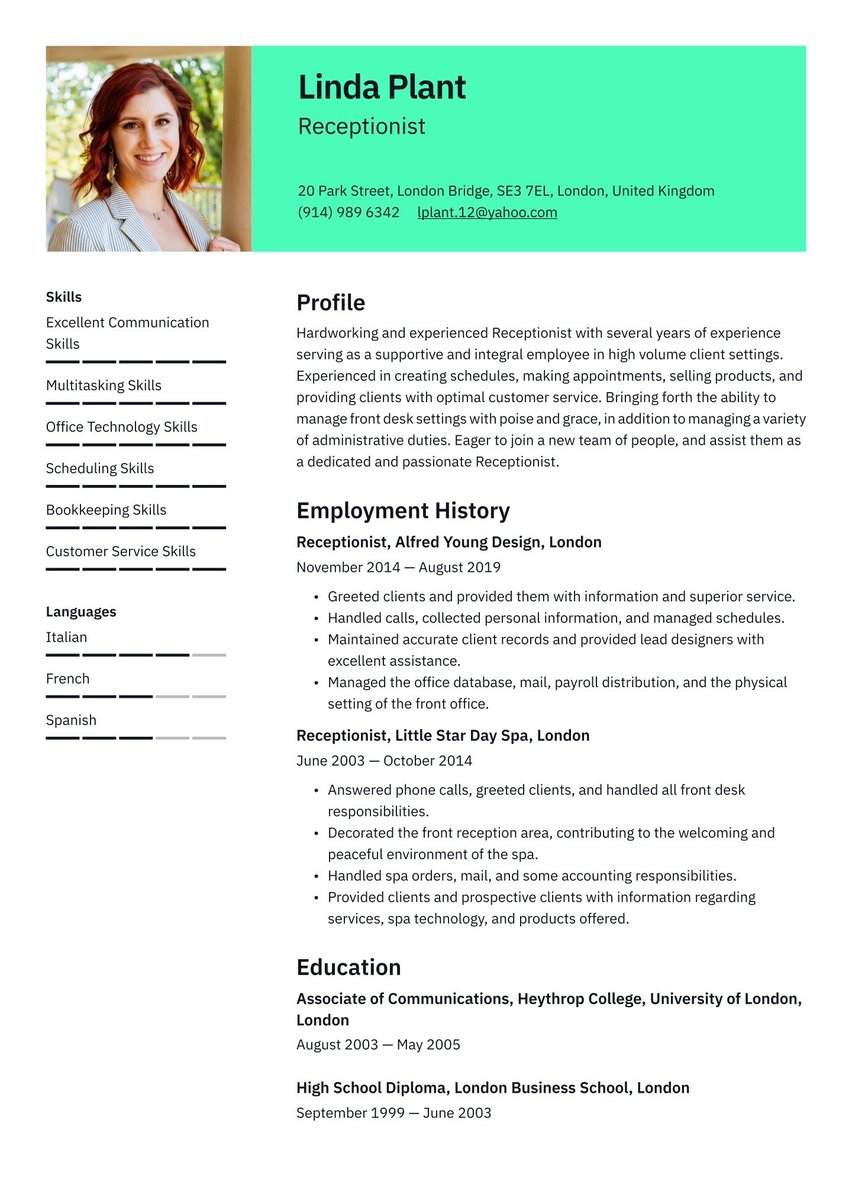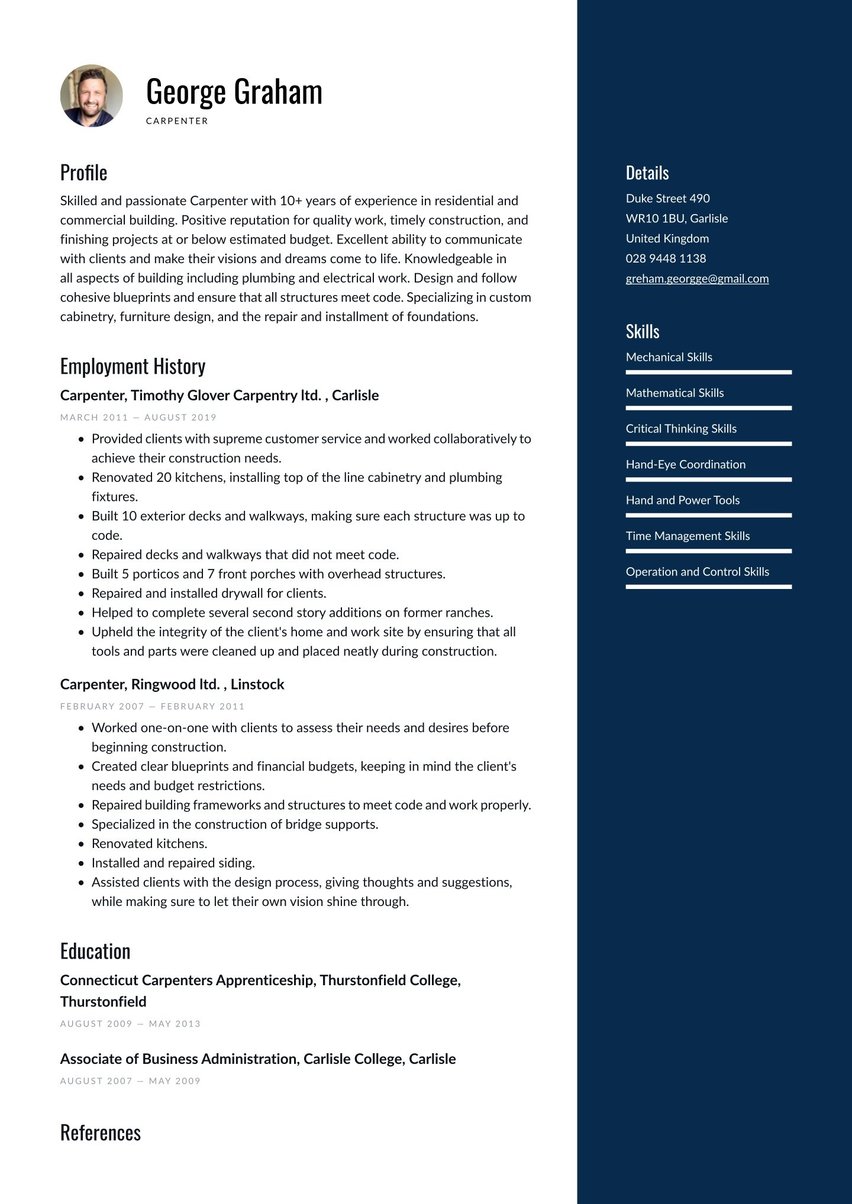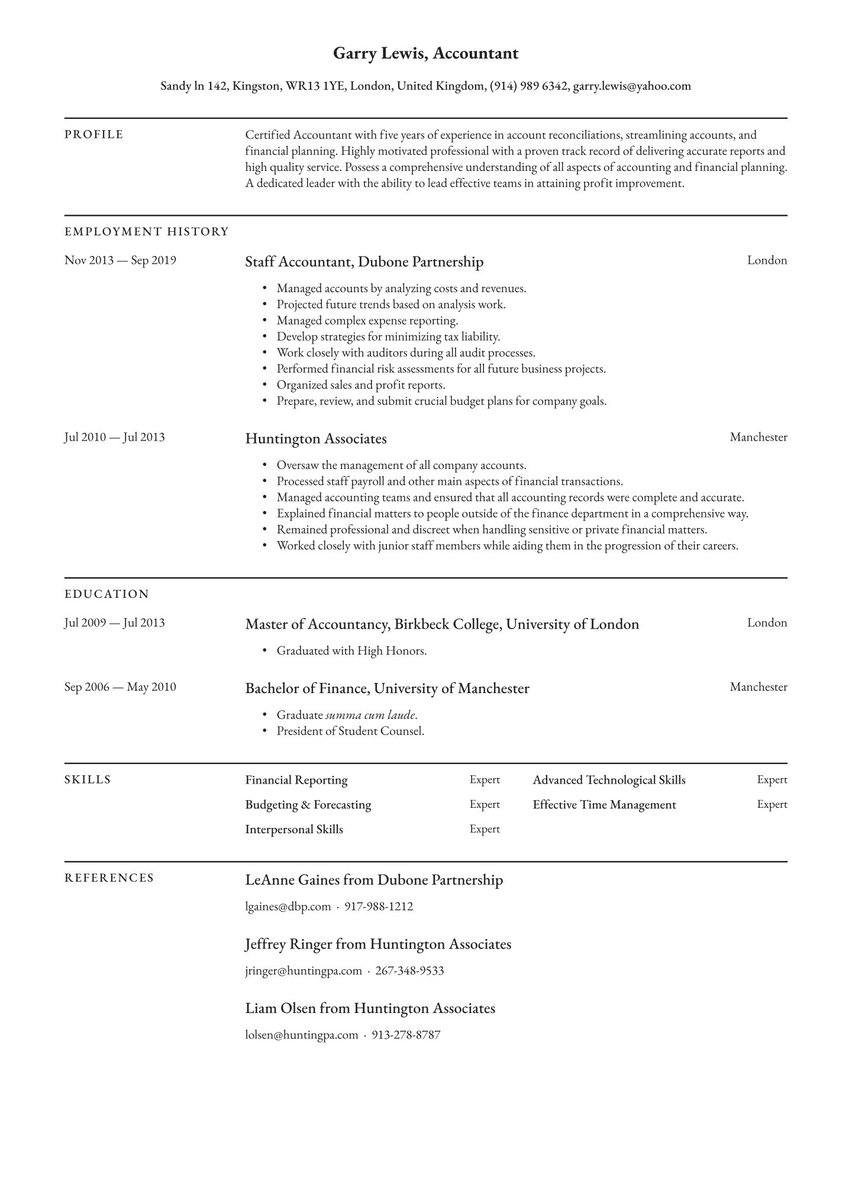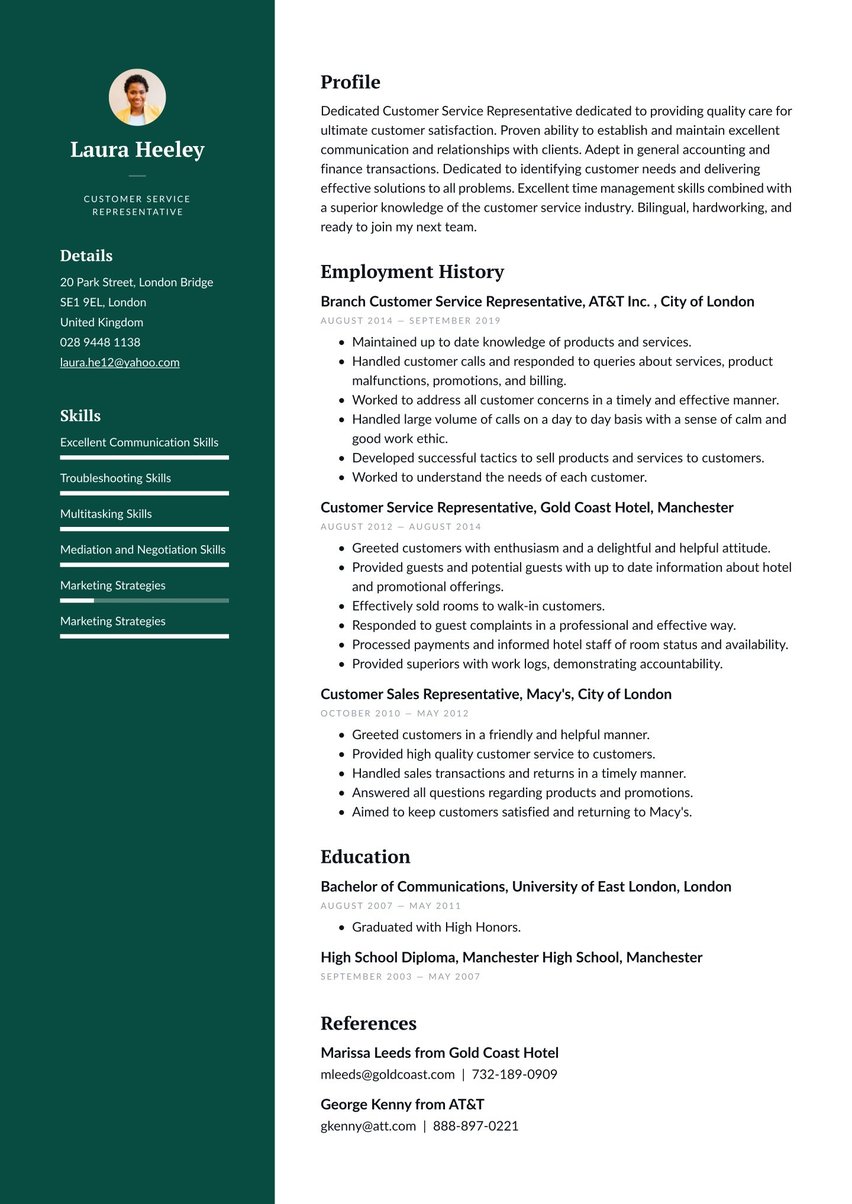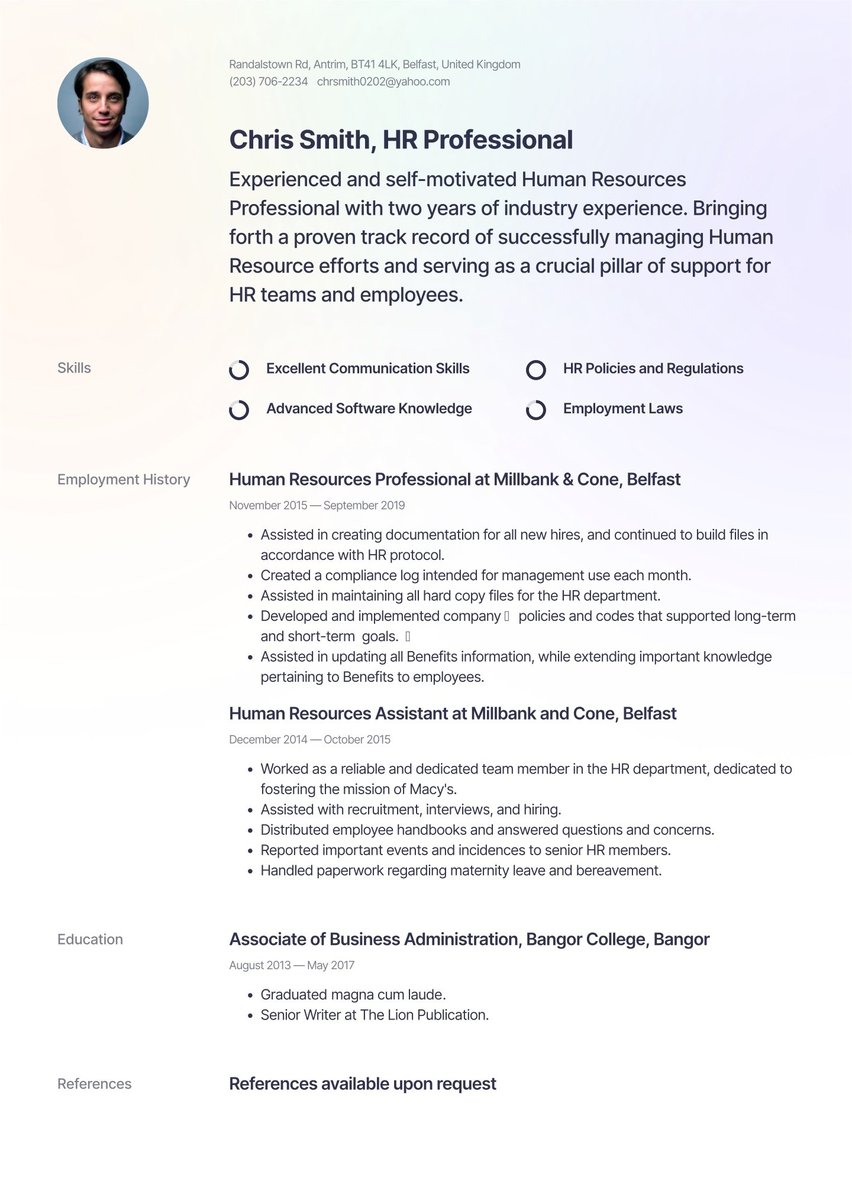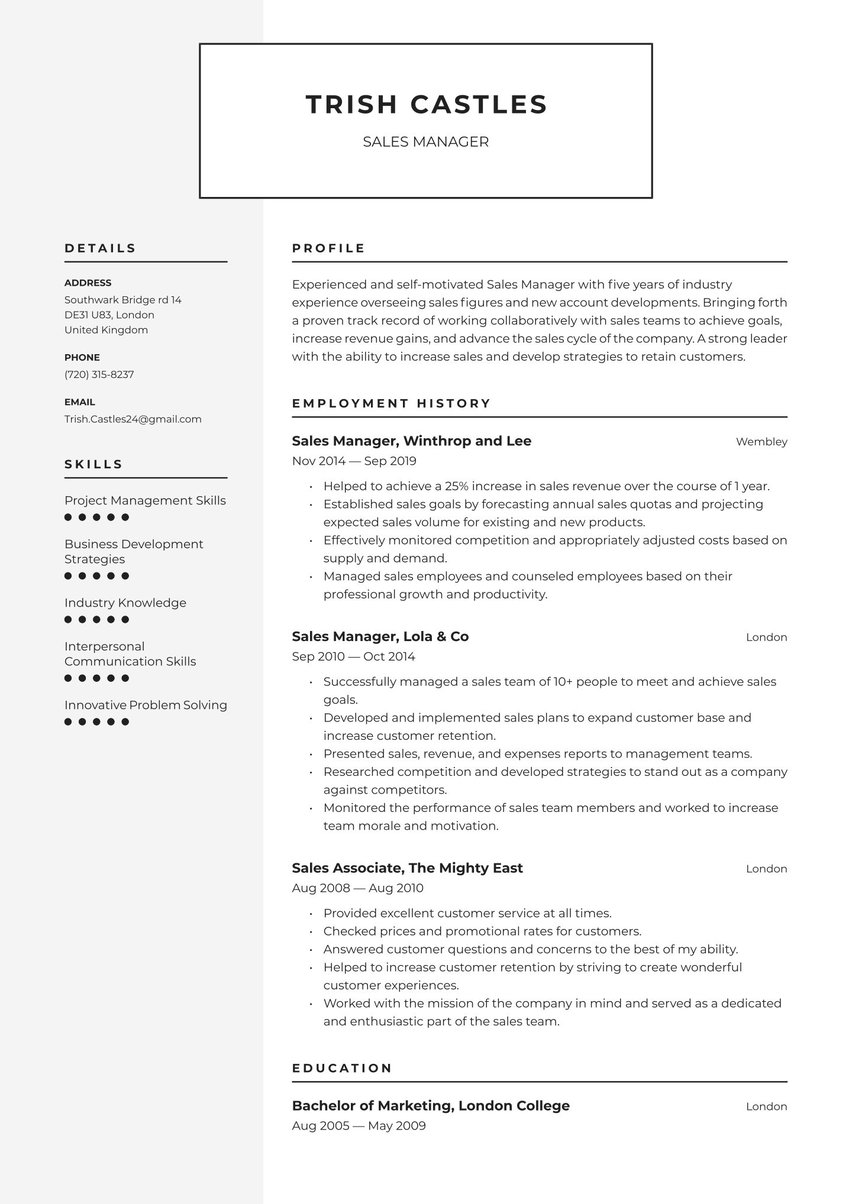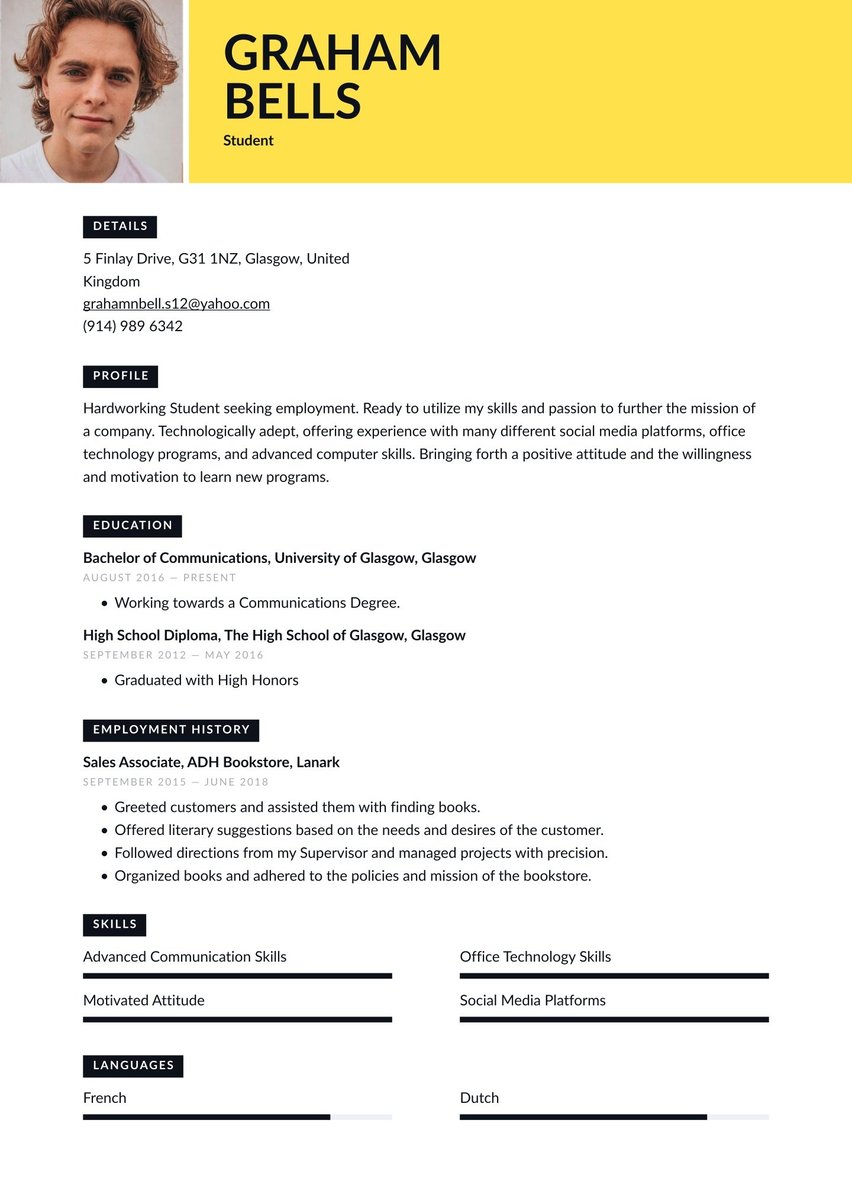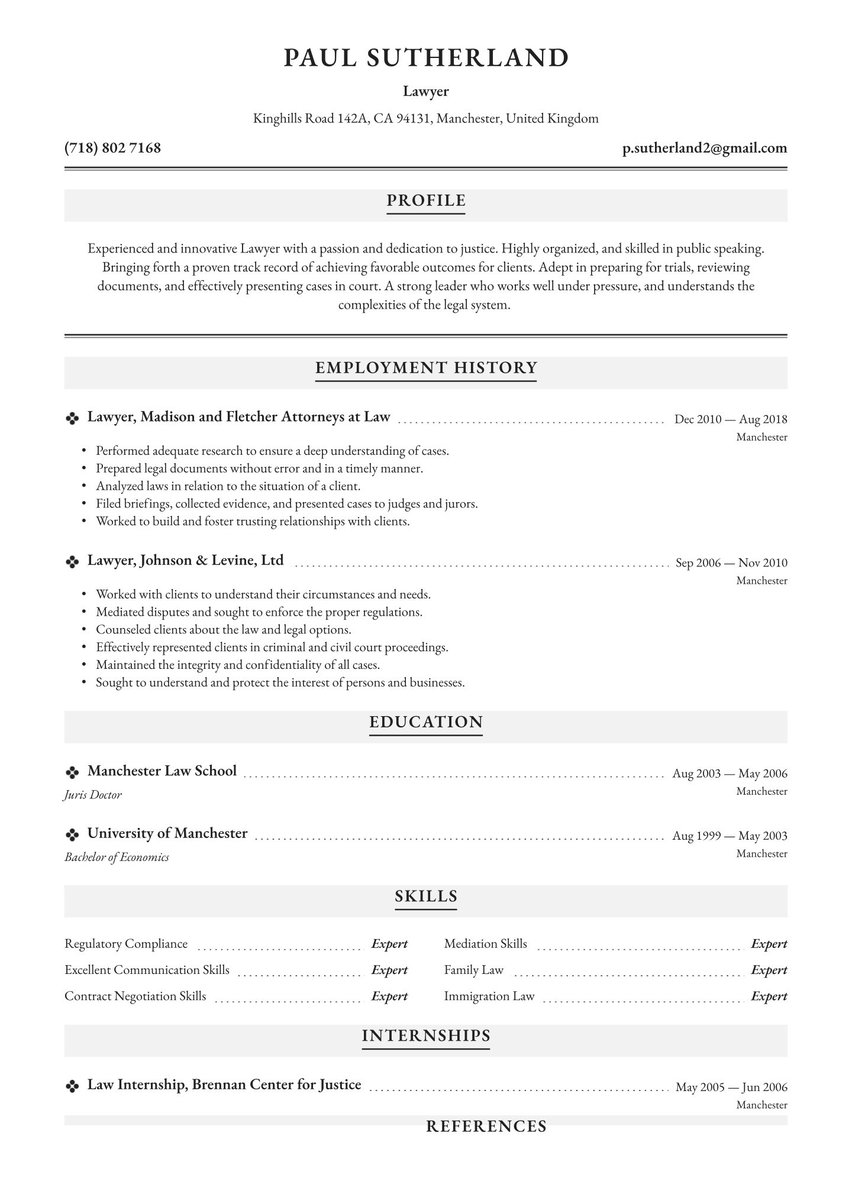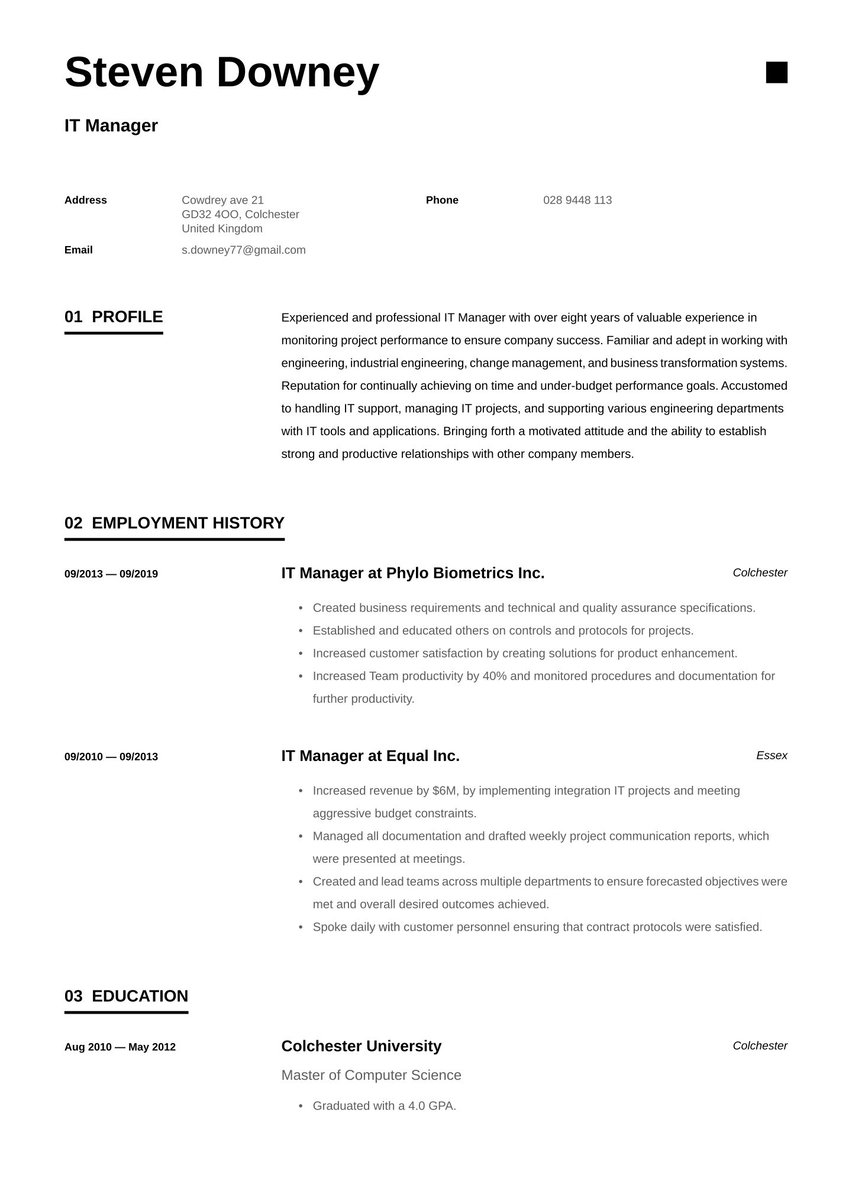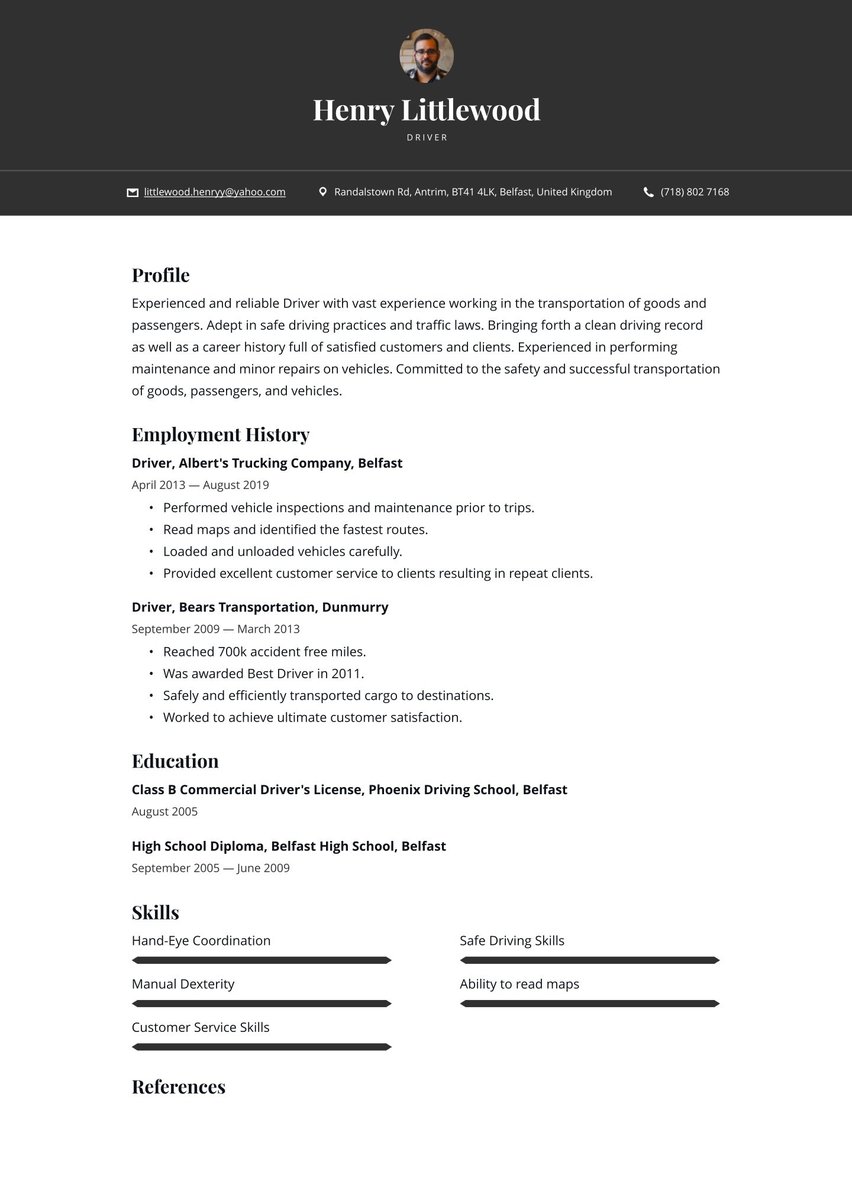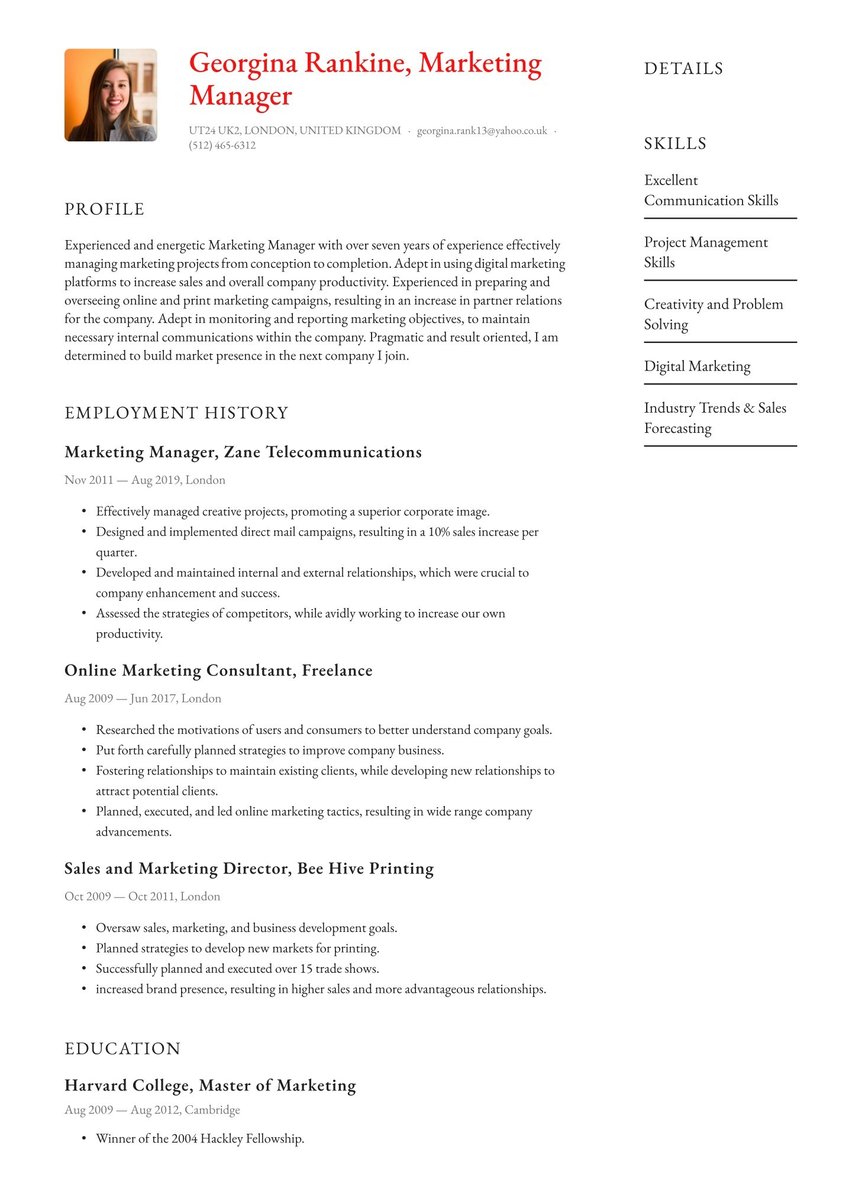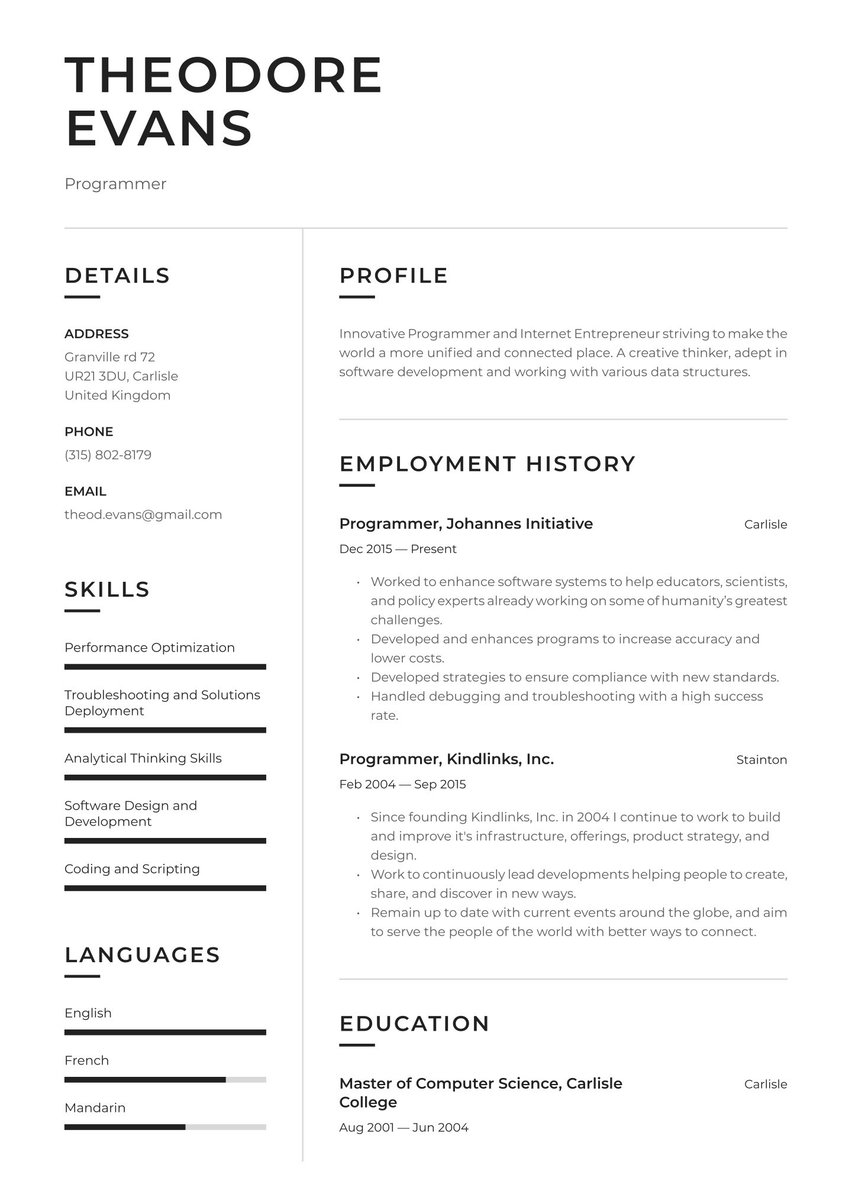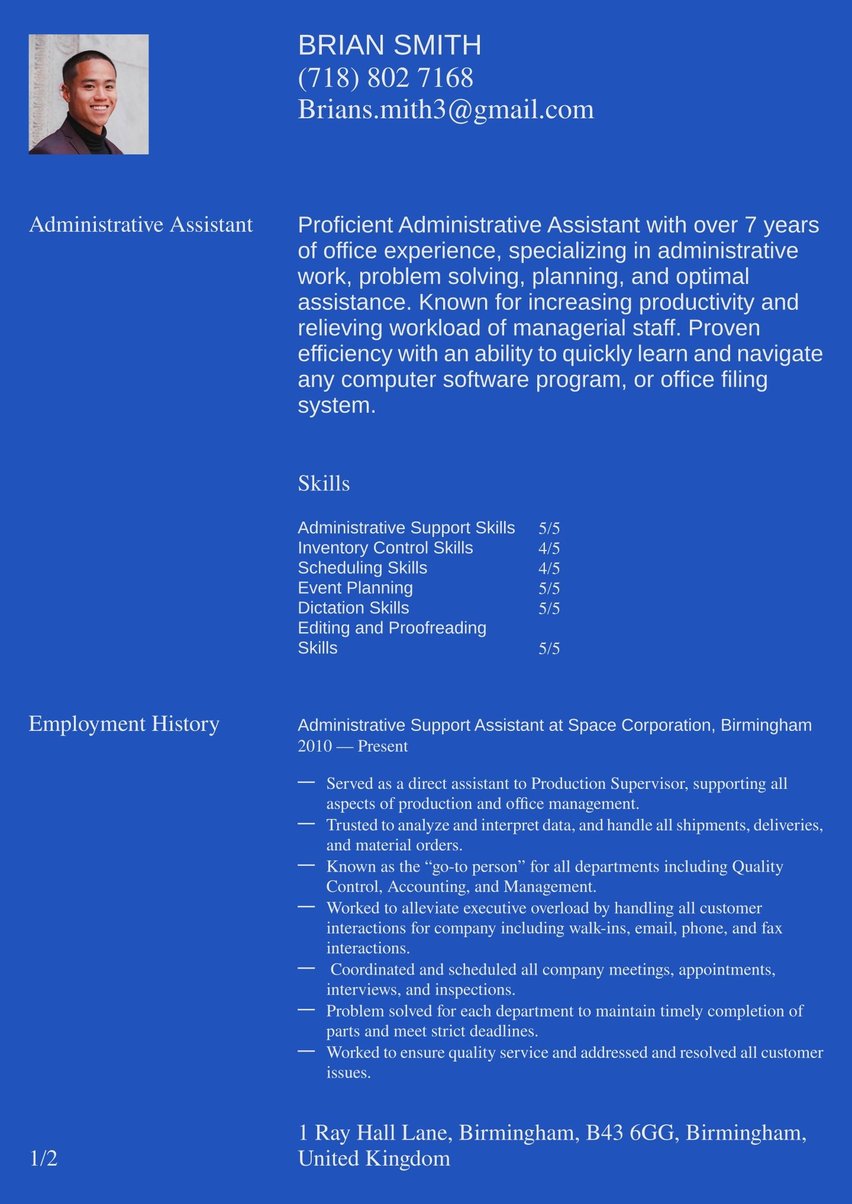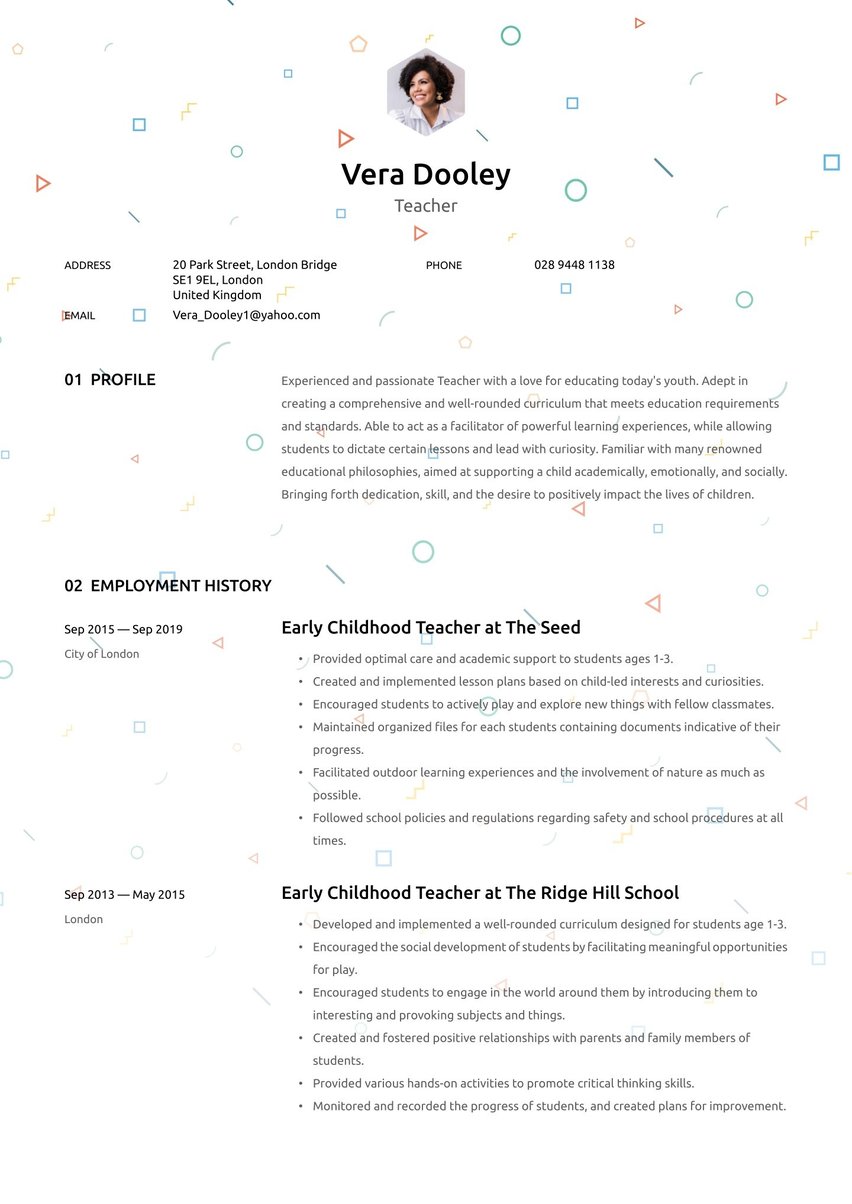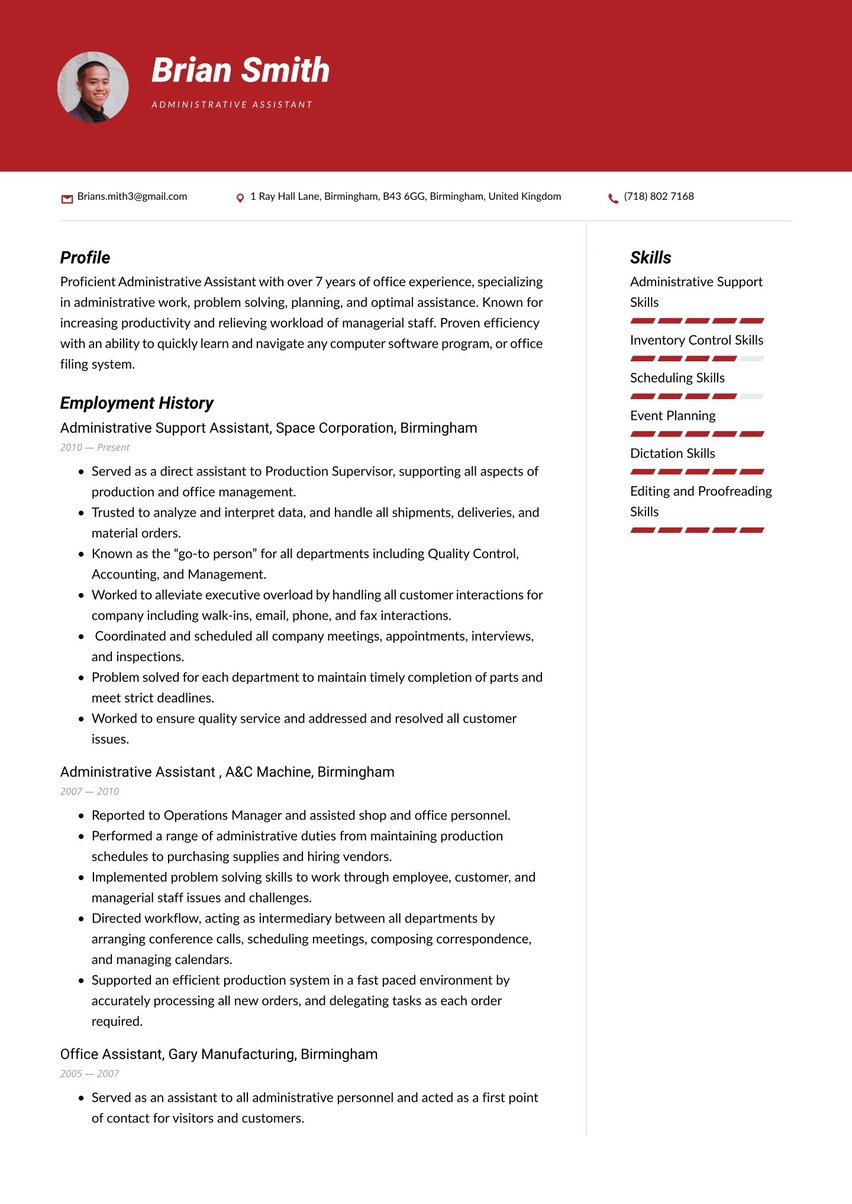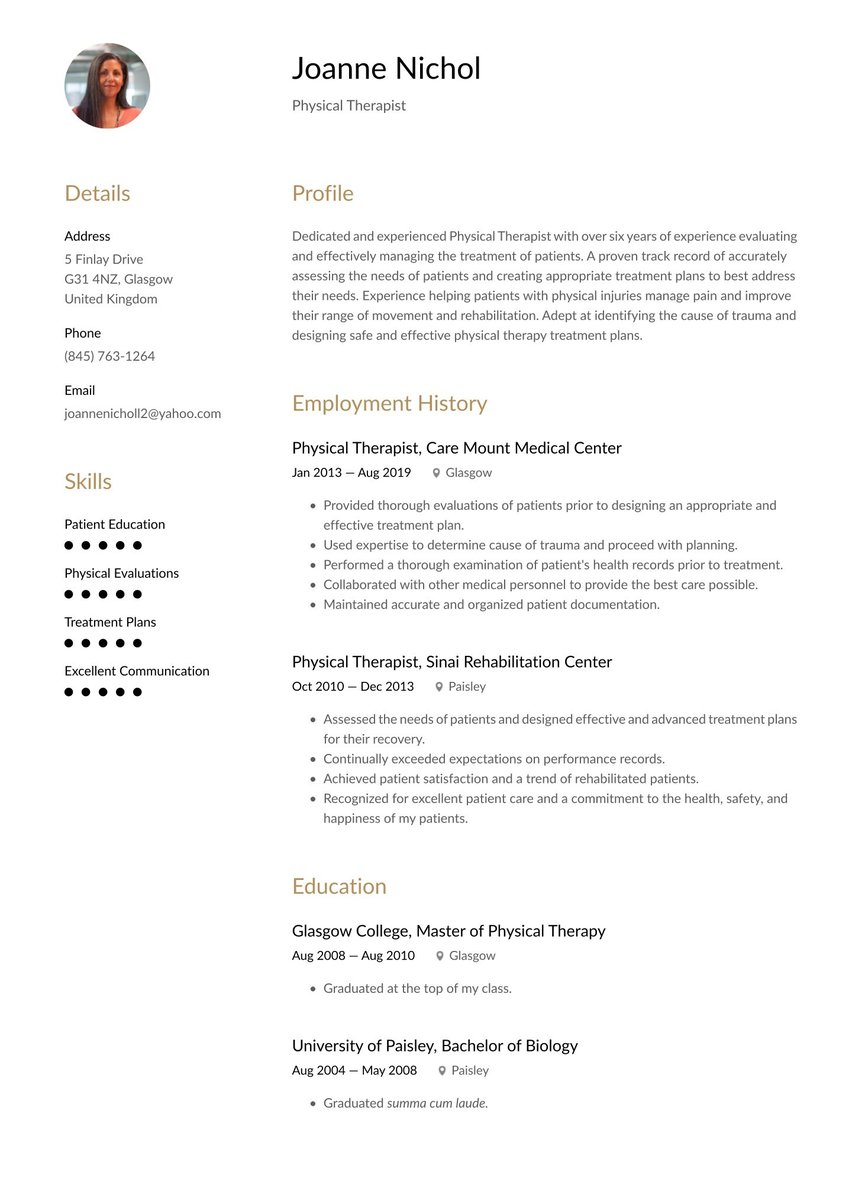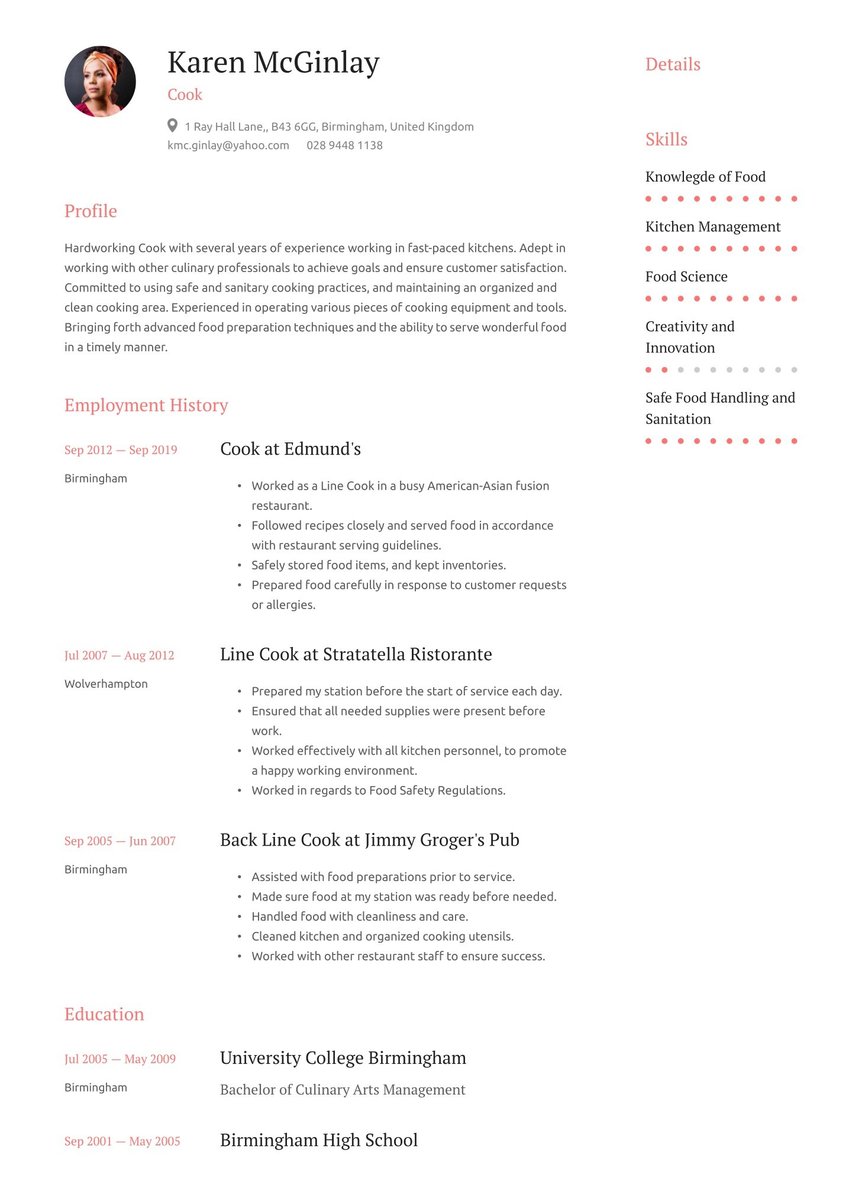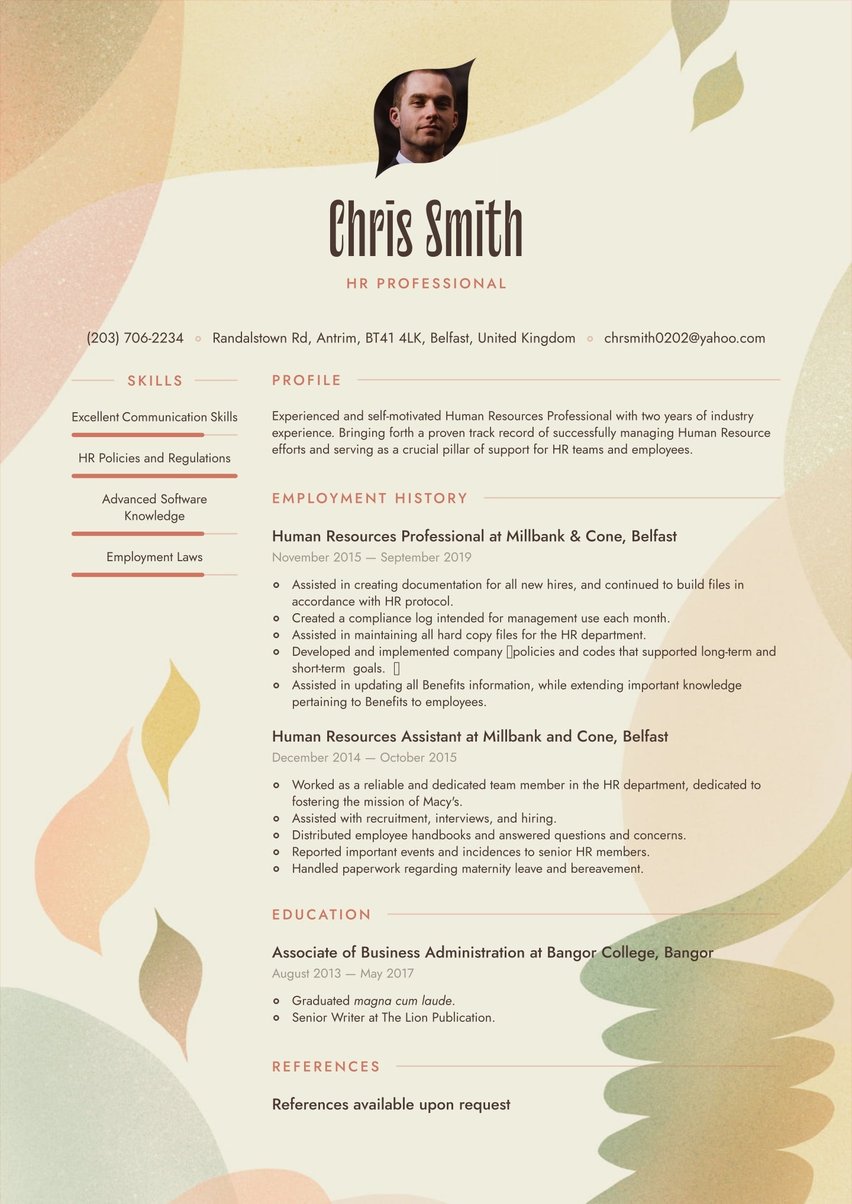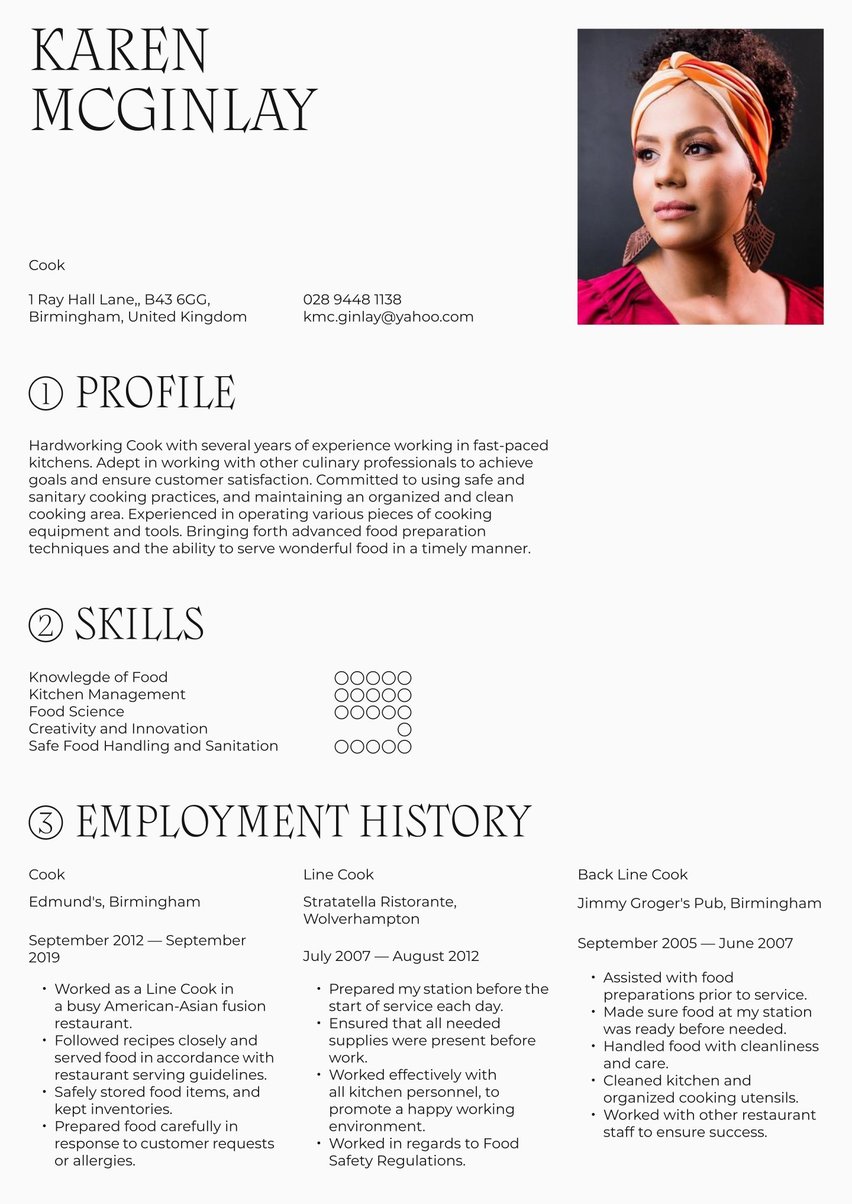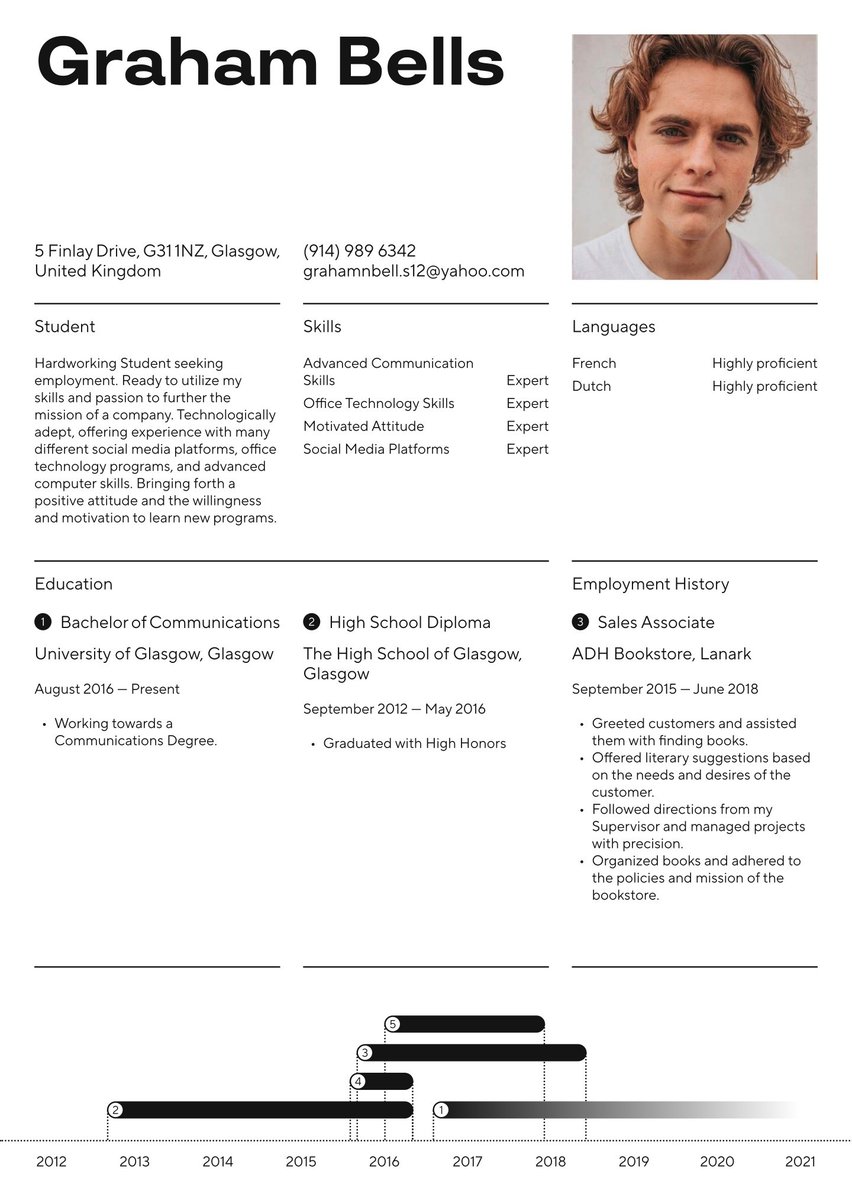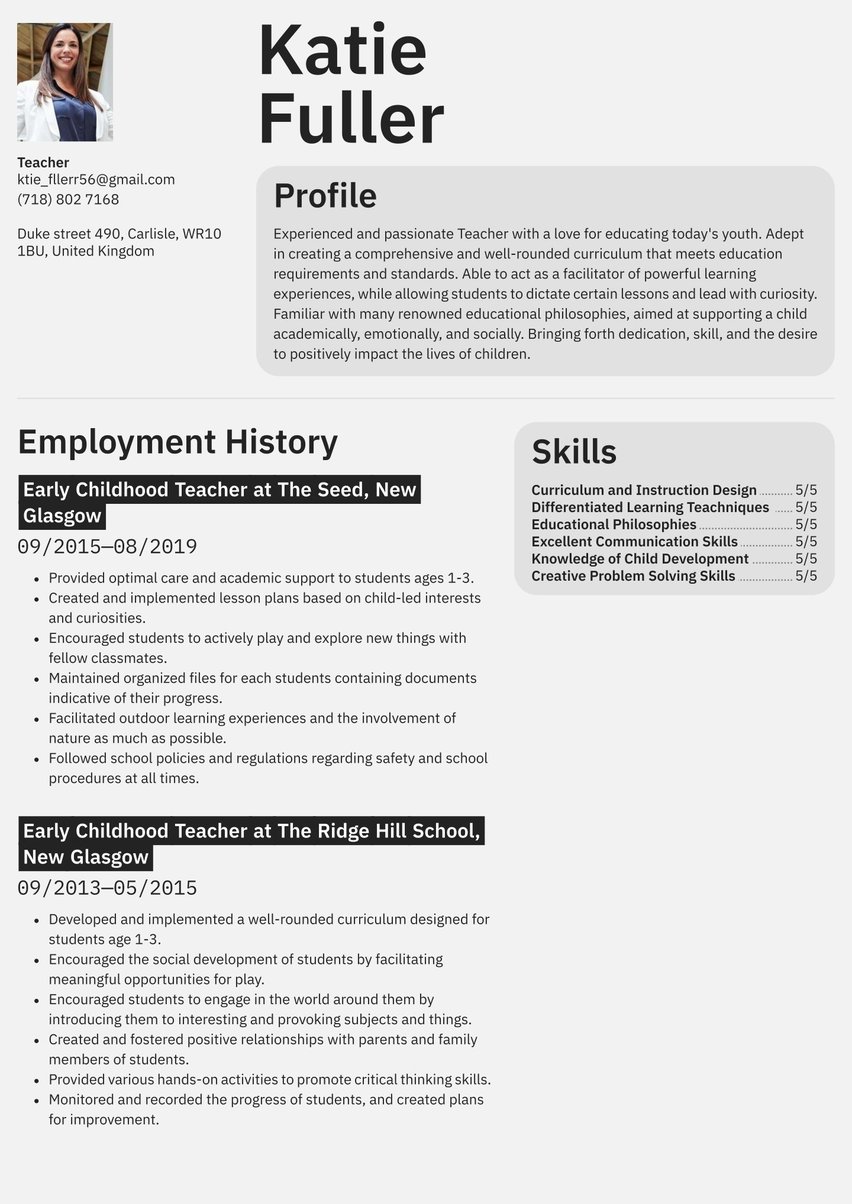Hardworking and reliable farm worker seeking a position on a farm or agricultural setting to utilise my skills in crop cultivation, animal husbandry, and general farm maintenance.
01/2020 - present, Farm Hand, Fawley Farms Ltd., Pewsey
- Assisted in planting, irrigating, and harvesting various crops
- Operated and maintained farm machinery, such as tractors, harvesters, and irrigation systems
- Monitored crop growth and health, identifying and reporting any signs of disease or pests
- Performed general farm maintenance tasks, including fence repair, barn cleaning, and tool organisation
- Collaborated with other farm workers to ensure efficient and timely completion of daily tasks
01/2018 - 01/2020, Livestock Caretaker, Outcomes First Group, Frome
- Provided daily care for various livestock, including cattle
- Fed and watered animals according to established schedules and dietary requirements
- Monitored animal health, administering basic treatments and reporting any concerns to the farm manager
- Maintained clean and safe living conditions for animals, regularly cleaning and disinfecting pens and stalls
- Assisted with breeding, birthing, and weaning processes as needed
- Experience with a wide range of crops and farming techniques
- Knowledge of proper animal care and husbandry practices
- Proficient in operating and maintaining various farm machinery and equipment
- Excellent physical stamina and ability to work in varying weather conditions
- Strong problem-solving skills and ability to work independently or as part of a team
- Basic understanding of farm safety and bio-security protocols
Running a farm is a busy job full of variety — one day, you may be planting and fertilising crops, and before you know it, it’s time for harvesting.
While some farmers own and work on their own farms, many others work for someone else. This means that if you want to work on a farm but don’t own one yourself, you need to be prepared with a farmer or farm worker CV.
CV guide for a farm worker CV
Accelerate your success with Resume.io. Our UK guides and CV examples cover over 150 professions, and our CV builder makes it easier than ever to create a compelling CV for farm worker jobs or any others you may pursue.
This CV guide and corresponding farm worker CV example will cover the following:
- How to write a farm worker CV
- Choosing the right CV format for farm work
- How to add your contact information
- Using summaries
- Adding your farming experience
- Listing education and relevant experience
- Picking the right CV design/layout
- What the farm work job market looks like and what salary you can expect
How to write a farm worker CV
The very first step in writing your farm worker CV is understanding the necessary sections to include. Make sure your CV contains the following elements:
- The CV header
- The CV summary (aka profile or personal statement)
- The employment history section
- The CV skills section
- The education section
Applying for jobs is a process that takes time, much like the way you must wait for crops to grow. However, with the right tools, you can make the process easier and quicker. This starts with creating your CV.
Someone hiring a farm worker wants to see that you’re hardworking, comfortable with equipment, and knowledgeable about farm operations. Your CV should use the following formula to provide this information:
- Focus on your accomplishments, not just your responsibilities. Anybody can provide a list of farming tasks they were assigned, but not everyone has accomplished what you have. Think about your specific achievements and the value you’ve brought to past farms.
- Tailor your CV to each employer, adjusting your style and tone to theirs if you can.
- Use a simple, straightforward CV template that isn’t overly formal or stuffy. After all, farm work can be dirty!
- Optimise your CV for relevant keywords, which gives you the best chance of impressing both recruiters and any CV scanning software they may use (although tools like this are less likely to be used for small scale farming operations).
Optimise for the ATS
An applicant tracking system, or ATS, is a system companies use to collect and manage applications. Advanced systems may use algorithms to help screen CVs for keywords that are aligned with the job description, then pass the highest-ranking CVs along.
For example, a farm worker job posting may include the following requirements:
- “Comfortable operating farm machinery.”
- “Understanding of crop health.”
- “Ensuring a safe environment for livestock or poultry.”
- “Planting, cultivating, and harvesting crops.”
Your CV profile summary, when integrating the keywords, could read:
“Experienced farm worker with expertise operating various types of farm machinery to plan, cultivate, and harvest multiple crops. Expertise in crop health as well as health and safety of livestock and poultry.”
Choosing the right CV format for a farm worker
Think of a well laid-out farm with beautiful, organised rows of crops — that’s how you want your CV to be presented.
Typically, this means you want to use a reverse chronological format, wherein you focus primarily on your work experience. This should be listed in reverse chronological order to put the spotlight on your most recent experience.
If you’re just starting your farming career, or making a career pivot into the field (pun only slightly unintended), you may consider a functional or skills-based CV format, which lets you put the focus on your transferable skills instead of your employment history.
Whichever format you like, you can take a look at the many CV templates in our CV builder and select one that suits you. There are plenty of CV examples using each format as well.
Design-wise, make sure your farm worker CV is easy for the reader to view and understand — a nice simple layout is a great place to start.
Include your contact information
Just like farmers need to know unique instructions for the growth of each type of crop, a hiring manager needs the details about how to contact you. That’s where the CV header comes in.
The header is simply the top part of your CV, where you display your contact information and name in a professional manner. Things you’ll want to include are:
- Full name & title. List your first and last name and the title of the role you are pursuing.
- Professional email address. Use a clean format like firstname.lastname@gmail.com — not a quirky or unprofessional email address.
- Phone number. List a number where you can easily be reached. Make sure your voicemail box is not full and that your outgoing greeting is professional.
- Location. List only your city and country, not your street address or postcode — this is both outdated and unsafe.
- LinkedIn. Although LinkedIn isn’t overly common among farmers, if you have an active profile, you can include it here. Leave off other social media profiles, however.
Don’t include:
- Date of birth: This isn’t necessary and could potentially lead to age discrimination.
- Personal details: Your marital status, passport number, etc. have no use on a CV.
First Name Last Name
Experienced Farm Worker
[Phone number]
[Email address]
First Name Last Name
Trying to be a farmer
Street address
[Phone number]
letsgetgrowing3456@gmail.com
Make use of a summary
Your CV’s summary section is a great place to show your talents to the hiring team. In no more than 2-4 sentences, introduce yourself and make it clear why you’re exactly the person they need to hire to run their farm. To be most impactful, showcase your achievements, not just a list of duties you completed.
It’s best to use action verbs in the simple past or present tense — think: transformed, processed, harvested, cultivated, operated — and include quantifiable achievements wherever you can.
Avoid simply repeating information that’s already on your CV. Instead, illustrate the abilities and traits that make you a strong farm worker. Your CV summary should demonstrate your unique value. For example, “Experienced farmhand with expertise in caring for livestock, operating heavy machinery, and cultivating crops.” This is a chance to show who you are and what you’ll bring to the table, so make it count.
Need inspiration for your summary? Check out our related trade CVs:
You can find adaptable farm worker example summaries below:
Recent agricultural program graduate with 1 year of animal husbandry experience and a passion for cultivating plants. Maintenance background with experience operating heavy machinery. Eager to transition to a farmhand position and achieve success.
Experienced farm worker with 5+ years of experience planting, cultivating, and harvesting crops with increased yields year over year. Exceptional understanding of agricultural processes after earning a Level 3 Diploma in Agriculture and completing an Assistant Farm Manager Level 4 Higher Apprenticeship.
Seasoned farm manager with 15 years of experience overseeing all aspects of farm operations, including crop management, animal welfare, and maintenance. Proven success leading teams of up to 10 to achieve increased efficiency across all operations. Achievements include reducing farm costs by 15% and increasing yield by 30% year over year.
Outline your farm work experience
Continuing with the reverse chronological format, list your current or most recent position at the top of this section, then work your way through the past 10-15 years of experience. Don’t go past that, as it’s less likely to be relevant and can lead to ageism. Focus mostly on work that’s directly related to farm work; if you do have other experience you want to include, you can consider adding it to an “Other Experience” section.
Under each employer and role heading, describe your achievements and impacts in concise bullet point statements, omitting personal pronouns like “I” and “my.” Be as specific as you can, start each bullet point with an action verb, and include quantifiable metrics wherever possible.
Remember to showcase tangible outcomes instead of simply listing job duties. For instance, a basic farm worker CV may include statements like these:
- "Cultivated crops.”
- "Operate heavy machinery.”
- "Took care of livestock.”
While these are certainly in line with what any farm worker might do, that’s also the problem — they apply to any farm worker, not you and your specific talents.
Transform these vague statements into something much more compelling by using results to describe the way you impacted previous farms or companies. Take a look at what happens:
- "Planted and cultivated crops, increasing annual production by 30%.”
- "Operated farm machinery including tractors and ploughs with extensive commitment to safety.”
- "Cared for 150+ livestock, including feeding, cleaning pens, and administering medication as needed.”
Take a look at the farm worker employment history CV sample below:
Farm Hand at Fawley Farms Ltd., Pewsey
2020 - Present
- Assisted in planting, irrigating, and harvesting various crops
- Operated and maintained farm machinery, such as tractors, harvesters, and irrigation systems
- Monitored crop growth and health, identifying and reporting any signs of disease or pests
- Performed general farm maintenance tasks, including fence repair, barn cleaning, and tool organisation
- Collaborated with other farm workers to ensure efficient and timely completion of daily tasks
Livestock Caretaker at Outcomes First Group, Frome
2018 - 2020
- Provided daily care for various livestock, including cattle
- Fed and watered animals according to established schedules and dietary requirements
- Monitored animal health, administering basic treatments and reporting any concerns to the farm manager
- Maintained clean and safe living conditions for animals, regularly cleaning and disinfecting pens and stalls
- Assisted with breeding, birthing, and weaning processes as needed
How to write a farm worker CV with no experience
When creating a CV with no farm work experience, rely on transferable skills and your passion for the agricultural industry to increase your chances of success.
This means you should Include any educational background in agriculture, animal husbandry, or botany. If you’ve taken relevant courses, workshops, or training programs, add that as well. If you’ve done any volunteer work on or around a farm, be sure you add that to your CV.
Display any relevant skills from your past experience. For example, if you have gardening experience or have worked with large animals, it’s helpful to showcase these skills.
While it isn’t always best practice to feature personal interests or hobbies on your CV, when applying for a job without experience it can be beneficial to include them so long as they’re relevant. For example, it could be helpful to share that you were part of an organisation like The National Federation of Young Farmers' Clubs?
Adding these details to your CV can illustrate your passion for farming and your drive to learn, even if you lack direct experience.
Include the relevant key skills that make you a great farm worker
Your CV skills list should include both hard and soft skills to illustrate the full range of your farming abilities.
Hard skills are demonstrable skills that can be assessed objectively, like the ability to use certain farming equipment or knowledge of the lifecycle or planting requirements of specific crops.
Soft skills, on the other hand, are evidence of your personality traits or interpersonal skills — for example, your problem-solving abilities, attention to detail, or communication skills.
Our CV builder provides a myriad of pre-selected skills to choose from, as well as the option to upload your own.
Here’s what the skills box looks like in our CV template for farm workers.
Key Skills and Proficiencies
The CV skills section is the most obvious place to display your skills, but don’t stop there. Sprinkle seeds throughout your farmer CV to show your skills in action. Specific examples and achievements will lend even more credibility.
For example, in the work experience and professional summary, highlight things like:
- Farm equipment operation by describing the type of equipment you’ve utilised and the type of work you’ve done
- Crop knowledge by providing examples of crops you’ve planted and harvested as well as typical yields
- Livestock expertise by detailing the type of animals you’ve cared for and the extent of your work with them.
The job advert is a great place to start if you need guidance on what skills to include.
Detail your education & relevant farming certifications
Your education section for a farmer CV will be fairly straightforward. In this section, list your academic accomplishments in reverse chronological order. Keep in mind that if you’ve earned a university degree, you don’t need to include earlier education unless it’s especially relevant.
The path to a farming role can take a few different roads, including university courses, college courses, apprenticeships, or on-the-job experience. Because there isn’t a single point of entry, each farming CV will have a different education section. Beyond simply including degrees earned, you may consider adding the following to your CV:
- Training and certifications. Courses, workshops, or even webinars covering topics like agriculture, farm management, land management, or crop or livestock production. If you’ve taken continuing education courses at an agricultural college, that is also useful.
- Apprenticeships. If you’ve gained farming skills through apprenticeships, that valuable experience should be showcased on your CV.
- Professional development. Are you involved with relevant organisations like The Royal Agricultural Society of England, National Farmers Union, or The Soil Association? This shows your passion for the industry and your drive to further your involvement.
GCSE, North Hill House, Frome
Pick the right CV layout and design for a farmer CV
While the most important part of your CV is the content, the design matters, too. That’s how the hiring manager will navigate through your background and experience to assess your fit for the job. That means it’s imperative for the design to catch attention without being too flashy.
We recommend a simple and streamlined design with modern font and limited colour. If you’re looking for inspiration, our CV templates may be of interest — and we take care of all the formatting and structure for you!
Farm worker text-only CV example
Profile
Hardworking and reliable farm worker seeking a position on a farm or agricultural setting to utilise my skills in crop cultivation, animal husbandry, and general farm maintenance.
Employment history
Farm Hand at Fawley Farms Ltd., Pewsey
2020 - Present
- Assisted in planting, irrigating, and harvesting various crops
- Operated and maintained farm machinery, such as tractors, harvesters, and irrigation systems
- Monitored crop growth and health, identifying and reporting any signs of disease or pests
- Performed general farm maintenance tasks, including fence repair, barn cleaning, and tool organisation
- Collaborated with other farm workers to ensure efficient and timely completion of daily tasks
Livestock Caretaker at Outcomes First Group, Frome
2018 - 2020
- Provided daily care for various livestock, including cattle
- Fed and watered animals according to established schedules and dietary requirements
- Monitored animal health, administering basic treatments and reporting any concerns to the farm manager
- Maintained clean and safe living conditions for animals, regularly cleaning and disinfecting pens and stalls
- Assisted with breeding, birthing, and weaning processes as needed
Skills
- Experience with a wide range of crops and farming techniques
- Knowledge of proper animal care and husbandry practices
- Proficient in operating and maintaining various farm machinery and equipment
- Excellent physical stamina and ability to work in varying weather conditions
- Strong problem-solving skills and ability to work independently or as part of a team
- Basic understanding of farm safety and bio-security protocols
Education
GCSE, North Hill House, Frome
Farm worker job market and outlook
Farm work is a major industry in the UK. Looking at the entire agricultural and food sector — which includes not just farming but also manufacturing, wholesaling, and retailing — shows over four million people employed. This is over 13% of total employment for Great Britain.
Within just agriculture and the food supply chain, there were 462,000 individuals working in the industry in 2023.
The COVID-19 pandemic, Brexit, and climate-related regulations slowed the farming job market for a while, but experts expect to see an increase in demand over the next few years.
- Farm workers typically work 39-41 hours per week, many of these hours during evenings or weekends.
- There are various ways to enter the field, but a common option is to start with a course at an agricultural college, like Level 2 Certificate in Land-based Activities, Level 3 Diploma in Agriculture, or T Level in Agriculture, Land Management and Production.
- Apprentice options include General Farm Worker Level 2, Poultry Technician Level 3, Livestock Unit Technician Level 3, Crop Technician Level 3, or Assistant Farm Manager Level 4 Higher Apprenticeship.
What type of salary you can expect as a farm worker
The National Career Service shares that experienced farmers and farm managers can make up to £50,000 annually.
In 2022, a survey led by the Institute of Agricultural Management discovered the average total compensation of farm managers was approximately £53,300, including salary, bonuses, and profit sharing.
Key takeaways for building a farm worker CV
Farm work is an excellent career choice for those who are energetic, like working with their hands, and enjoy holding a meaningful career that impacts individuals around the world. A well-crafted farm worker CV will help you land the right farm position, where you can grow crops and your own skill set.
The first step is to check out our online CV builder, which can help you cultivate the ideal farm worker CV and plant the seed for success.

